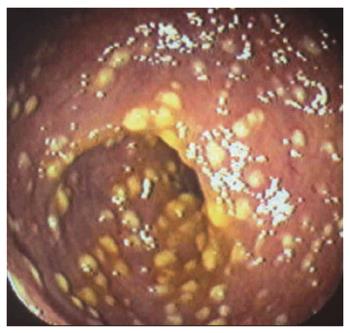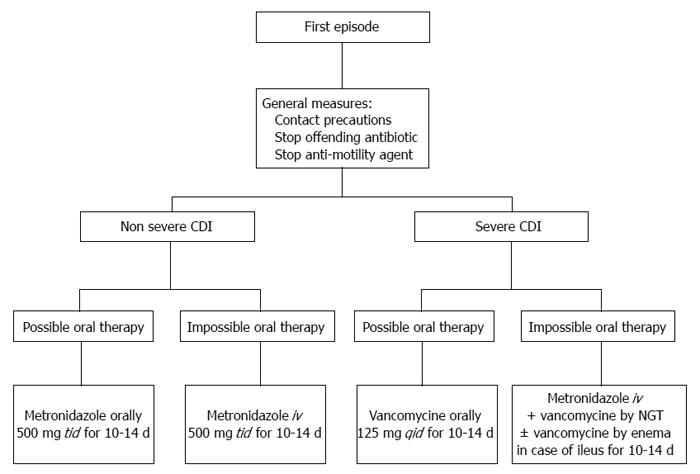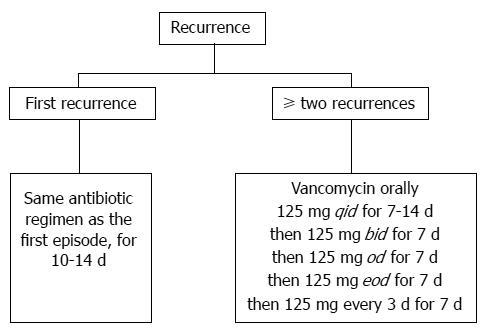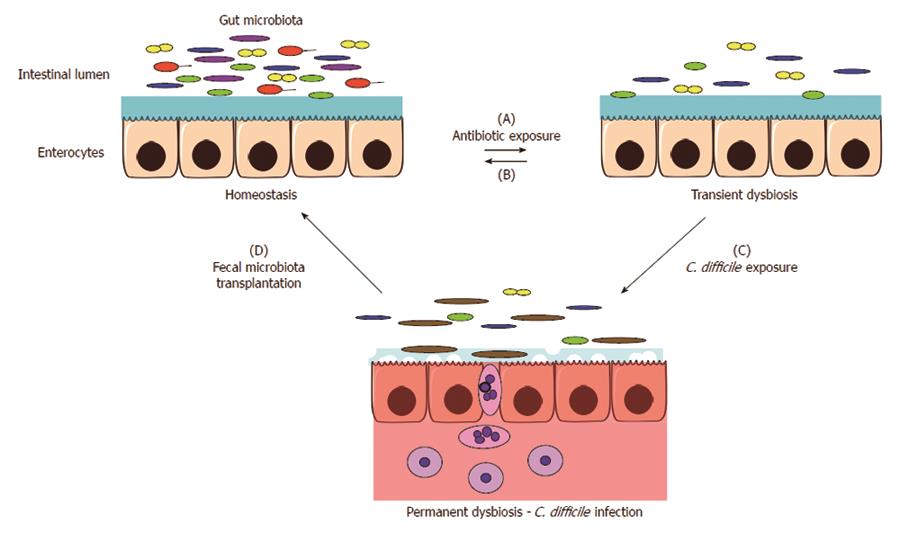Copyright
©2014 Baishideng Publishing Group Inc.
World J Gastroenterol. Jun 21, 2014; 20(23): 7416-7423
Published online Jun 21, 2014. doi: 10.3748/wjg.v20.i23.7416
Published online Jun 21, 2014. doi: 10.3748/wjg.v20.i23.7416
Figure 1 Colonoscopy showing typical yellow pseudomembranes that cover superficial mucosal ulcerations.
Figure 4 Perturbation of intestinal microbiota by antibiotics allowing Clostridium difficile infection and fecal microbiota transplantation effect (adapted from[27]).
A: Antibiotic use destroys some sensitive bacteria and reduces the microbiota diversity and resistance to colonization by opportunistic pathogens; B: In the absence of opportunistic infection, microbiota usually recover its homeostasis; C: Clostridium difficile (C. difficile) infection can lead to persistent dysbiosis; D: Fecal microbiota transplantation restores microbiota diversity and colonization resistance and allows the elimination of C. difficile.
-
Citation: Zanella Terrier MC, Simonet ML, Bichard P, Frossard JL. Recurrent
Clostridium difficile infections: The importance of the intestinal microbiota. World J Gastroenterol 2014; 20(23): 7416-7423 - URL: https://www.wjgnet.com/1007-9327/full/v20/i23/7416.htm
- DOI: https://dx.doi.org/10.3748/wjg.v20.i23.7416












